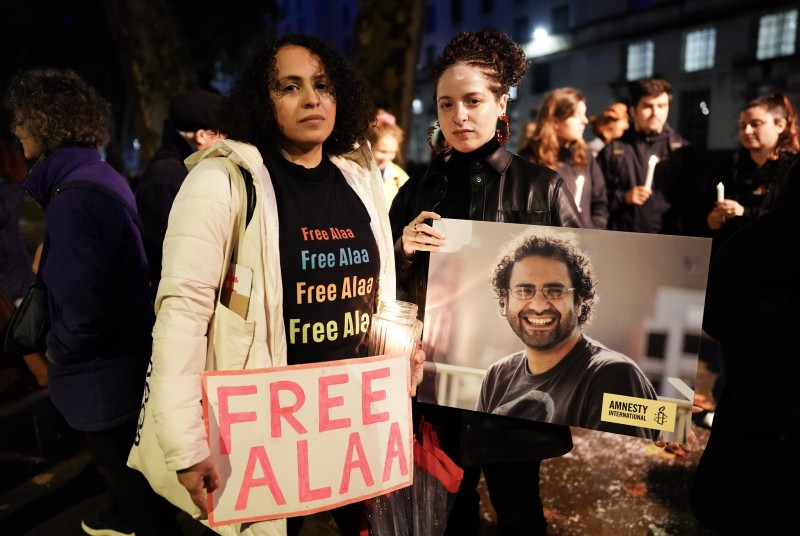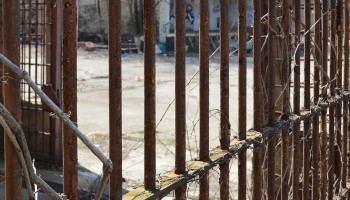Reported by
Egyptian-British activist Alaa Abd el-Fattah was released under a presidential pardon after spending nearly 12 years in and out of prison, following international and domestic pressure. Rights groups hope the release will mark a “watershed” in Egypt’s human rights crisis.
Abd el-Fattah, 43, a human rights blogger and leading voice for freedom of expression during Egypt’s 2011 uprising, had been jailed under every regime since 2006. He was freed along with five other prisoners included in the pardon.
He was arrested in 2014 for taking part in an “unauthorized protest.” Although briefly released in 2019, he was detained again later that year and, in December 2021, sentenced to five years for “spreading false news and harming Egypt’s national interest.” Authorities kept him beyond the scheduled end of his sentence in September 2024, arguing that his pretrial detention did not count toward the term.
“Alaa should have been released in September last year. But it didn't happen because authorities didn't deduct [the time he spent in pretrial detention] from the prison term,” Mahmoud Shalaby, Egypt and Libya researcher at Amnesty International, told OCCRP.
Amr Magdi, senior Middle East and North Africa researcher at Human Rights Watch (HRW), credited the activist’s release to relentless campaigning by his family. “Alaa's release could not be secured without all the campaigning and pressure over the past two years, particularly by his brave mother and family. His mother was on hunger strike for months and doctors warned she could die at any point,” he told OCCRP.
Abd el-Fattah’s mother, 69-year-old Leila Soueif, launched a nearly 300-day hunger strike in September 2024. Magdi called her “representative of Egyptian society at the moment—a society that is hungry for justice, dignity and who's ready to sacrifice and has sacrificed a lot for their beliefs.”
“You can't simply let a mother on a hunger strike die on your watch only because she wants to hug her son after 11 years of unjust imprisonment,” he added.
Shalaby said Abd el-Fattah’s case was “special” because of “a lot of international pressure and a lot of campaigning inside and outside the country.” He and Magdi both cited pressure from Britain, where Abd el-Fattah also holds citizenship, as decisive. “I don't believe that Alaa would have been released without the U.K. intervention,” Magdi said. However, he added, "that doesn't mean domestic action and pressure was insignificant…It's the culmination of intensifying efforts.”
A U.N. panel in May 2025 had already ruled Abd el-Fattah’s detention illegal and urged Egypt to free him immediately and provide compensation.
Rights groups stress that his release is an exception, not a turning point. “We estimate that there are thousands of people who are held for political reasons or for exercising their human rights in prison in Egypt,” Shalaby said. Many of those detained include teenagers, disabled minors and families of activists targeted “as a form of reprisal,” often held for years without trial.
Women Journalists Without Chains estimates that as of June 2025 more than 60,000 political prisoners—including women, children, journalists and human rights defenders—remain in Egyptian jails, many on vague charges or in prolonged pretrial detention. In August, U.N. human rights chief Volker Türk condemned Egypt’s use of “rotation,” the practice of keeping prisoners in custody beyond their sentences.
Still, advocates hope Abd el-Fattah’s release signals a chance for change. “It's a genuine opportunity for Sisi's government to end the years-long, suffocating human rights crisis in the country, first and foremost by releasing thousands of the unjustly detained critics and opening the civic space,” Amr Magdi said.
With her son finally home, his mother Leila Soueif told reporters the real day of celebration will come only “when there are no longer detainees” in Egypt.






